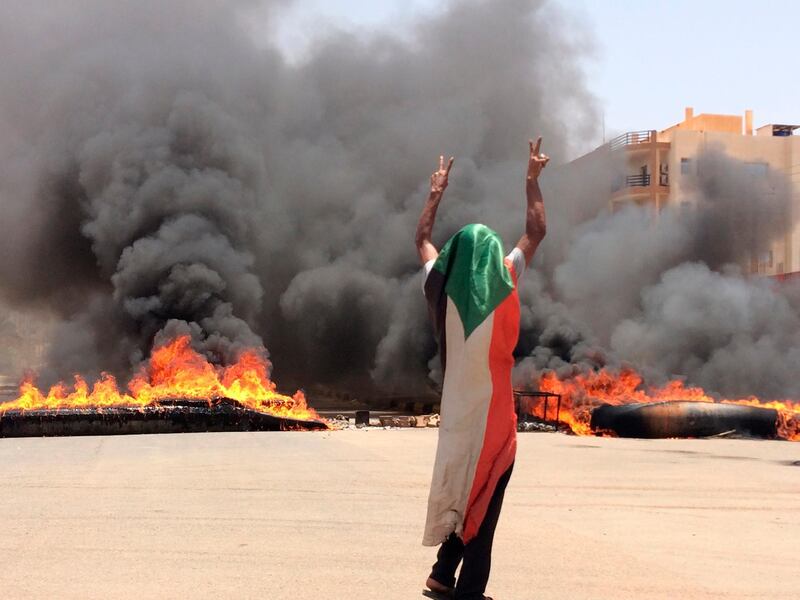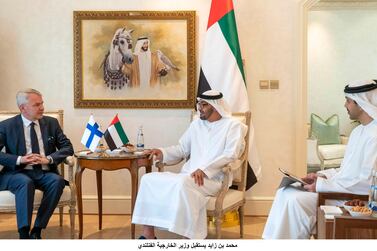An official investigation into the deadly June 3 raid on a Sudanese protest camp near the defence ministry in Khartoum has found that a feared paramilitary group was involved but without orders from the top.
Chief investigator Fatah Al Rahman Saeed said orders had been given to security forces to clear an area near the protest camp. But a general from the Rapid Support Forces paramilitary also ordered a colonel to disperse the sit-in outside the army headquarters, he said.
"They led the [RSF] forces ... inside the sit-in area and ordered them to get down from their vehicles and whip the protesters," Mr Saeed told a press conference on Saturday.
Protesters and rights groups have accused the RSF of carrying out the raid, but its leader General Mohamed Hamdan Dagalo, who is also deputy chief of Sudan's ruling military council, has steadfastly denied his group's involvement.
The Sudanese military took charge of the country after removing longtime president Omar Al Bashir on April 11 following months of protests against his rule. However the protesters continued their sit-in to demand a handover of power to civilians. Talks between the military and a coalition of civilian groups on a power-sharing arrangement broke down after the security down but were resumed after outside mediation
Mr Saeed identified the RSF general who allegedly ordered the raid by his initials ASA, and the colonel as AAM.
"It is clear to the committee that General ASA issued an order to Colonel AAM to deploy anti-riot forces of the RSF, even when they were not part of clearing Columbia," Mr Saeed said, referring to the area near the sit-in which the authorities had ordered cleared.
He said an RSF captain, identified as HBA, was involved in clearing Colombia but was later ordered to go to the sit-in to disperse it.
He said that security forces "broke the law and entered the sit-in area".
They "removed the barricades, fired tear gas and fired intense and random bullets that led to the killing and wounding of protesters and the burning of tents," he said.
Mr Saeed said 87 people were killed in the violence, higher than the 61 claimed by authorities, but much lower than the 127 deaths counted by doctors associated with the protests movement.
He said 17 of the 87 people killed were in the square occupied by protesters, and that 168 people were wounded, with 48 of them hit by bullets.
"The findings of this committee represent a shock to the Sudanese street and the regional and international communities," said Ismail Al Taj, a leader in the Sudanese Professionals' Association (SPA), part of the opposition coalition.
"Reality says that there are closer to 130 martyrs," Mr Al Taj said, adding that the committee had relied on health ministry records, which he said were inaccurate.
Reflecting anger at the findings, dozens of protesters chanted slogans against the investigation committee in Khartoum's Burri district and burned tyres in the street, witnesses said.
But Mr Al Taj said the committee's assessment would not affect the political process.
The opposition Forces of Freedom and Change coalition is negotiating with the ruling military council to finalise an agreement for a three-year transition to elections. The two sides signed a deal on July 17 determining the transition's institutions.
Negotiators travelled on Saturday to Juba, the capital of South Sudan which seceded from Sudan in 2011, to work on a constitutional declaration to determine the role of a new council to run Sudan. Direct talks are expected on Sunday.






